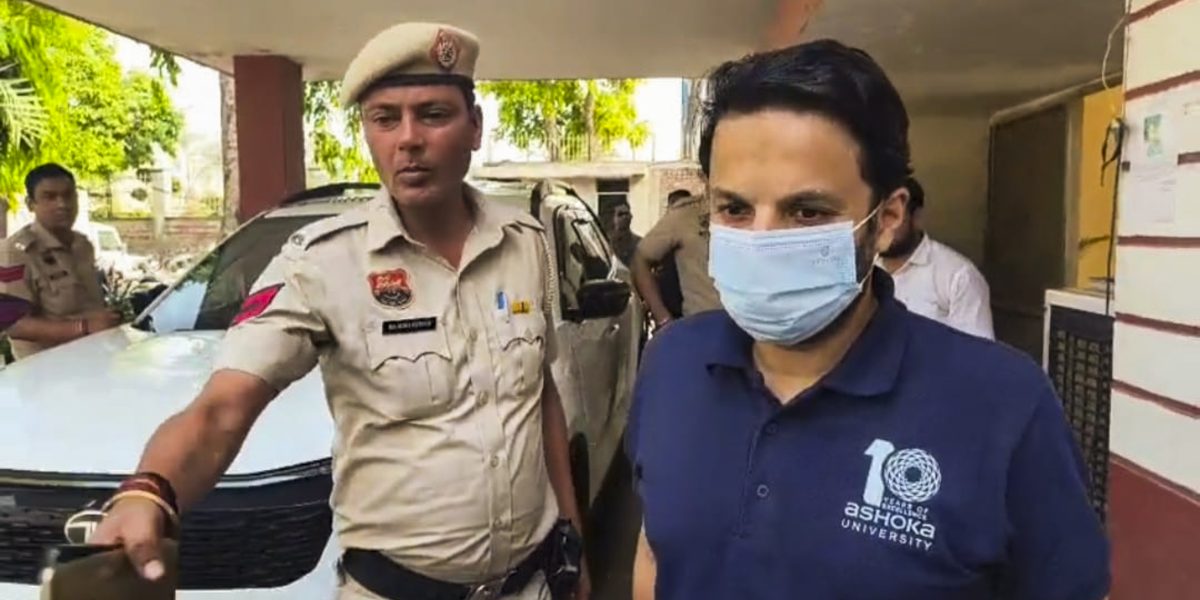Coercive action has been taken by the State of Haryana by arresting Ali Khan Mahmudabad, associate professor of Ashoka University, on alleged false and manufactured charges that his Facebook post on Operation Sindoor amounted to rebellion and sedition and harmed amity and solidarity among people pursuing diverse religious creeds. Mahmudabad was granted interim bail by the Supreme Court on Tuesday (May 21).
It stands in sharp contrast to how India’s first Prime Minister Jawaharlal Nehru intervened to get a scholarship for a young Irfan Habib in spite of the fact that he was member of communist party, faced some penal action from the Aligarh Muslim University for his activities.
The present case of shocking police action against Mahmudabad – putting him behind bars on very grave charges – over his posts needs a close look before putting it in the historical context of how Nehru helped Habib, who would go on to become a famous historian in the future.
Ali Khan Mahmudabad’s Facebook post
Mahmudabad, a young, bright and brilliant academic, was arrested by Haryana police on the grounds that his Facebook post on Operation Sindoor (conducted by Indian Army to deal with the threat of terrorism from Pakistan) among others, incited rebellion and hurt religious feelings.
Mahmudabad remarked in his post that the press briefings on Operation Sindoor conducted by colonel Sofiya Qureshi and wing commander Vyomika Singh were important and constituted good optics. While noting with satisfaction that many right wing commentators applauded colonel Qureshi, he boldly spelt out his concerns that the “optics” could be counted as “hypocrisy” if those commentors, in their role as Indian citizens failed in demanding equally loudly, the protection of “ the victims of mob lynchings, arbitrary bulldozing and others who are victims of the BJP’s hate mongering”.
He also referred to the example of a prominent Muslim politician who said “Pakistan Murdabad” and was trolled by Pakistanis and applauded by Indian right wing commentators hailing him as “our mulla”. “Of course this is funny” remarked Mahmudabad and observed with sadness “but it also points to just how deep communalism has managed to infect the Indian body politic.”
However, he displayed optimism that the press conference addressed by colonel Qureshi and wing commander Singh offered him a fleeting glimpse of, what he said, “to an India that defied the logic on which Pakistan was built”. “As I said,” he said, “the grassroots reality that common Muslims face is different from what the government tried to show but at the same time the press conference shows that an India, united it its diversity, is not completely dead as an idea.”
It is preposterous to think that what he wrote pointed to sedition or attempts to stoke enmity among people professing diverse faiths. The arrest of professor Ali Khan is an example of State action egregiously violating the constitutionally guaranteed freedom of expression and rule of law.
Nehru on Irfan Habib
It is against this sordid backdrop that we may recall how seventy years back in 1955, Nehru intervened to get a scholarship for Irfan Habib, now a renowned historian. Nehru’s intervention was warranted because the Home Ministry had raised objections owing to the fact that Habib was a member of the Communist Party.
Following Zakir Hussain’s pleadings that Habib should be helped Nehru met him. In the letter to Zakir Hussain, Nehru wrote that Habib was a Member of Communist party and the government scholarship should not be given to someone who might use it to study and later act against the State.
“No State,” Nehru wrote, “ could be expected to go out of its way to give a scholarship to a person on whom it could not rely or who was likely to indulge in activities which were harmful to the State”.
It is instructive that Nehru in that letter described Irfan and his comrades as Jesuits and he wrote that they belonged “… to the strict order and not over-scrupulous in their dealings with others, provided they carry out the dictates of that order to whom they owe their basic loyalty”.
“I see no reason why Government should go out of its way to offer a scholarship to a person who is so tied up with an order of this kind, whether it is the communist party or some other,” Nehru sharply noted.
However, while he did make those remarks, Nehru also showed his statesmanship and wrote, “I recognise, of course, that one must not judge young people too strictly and youthful enthusiasm must not be ignored. Probably, with some greater experience, one grows out of these immature grooves of thought and action”.
In the end, he advised the Ministry of Education to give scholarship to Habib with the remarks that “…. he is a young man of intelligence and, I believe, integrity and both these qualities will no doubt influence his future growth.”
Modi regime criminalising dissent
Seventy years after Nehru displayed his liberality while dealing with a young dissenting academic like Habib and granted him a scholarship, a young professor like Mahmudabad is being put behind bars for his Facebook post which is full of constructive crticisim rooted in idea of India. Eventually Mahmudabad will triumph because in his own words, “India, united in its diversity, is not completely dead as an idea.”
S N Sahu served as Officer on Special Duty to former President of India K.R. Narayanan.
Courtesy: The Wire

